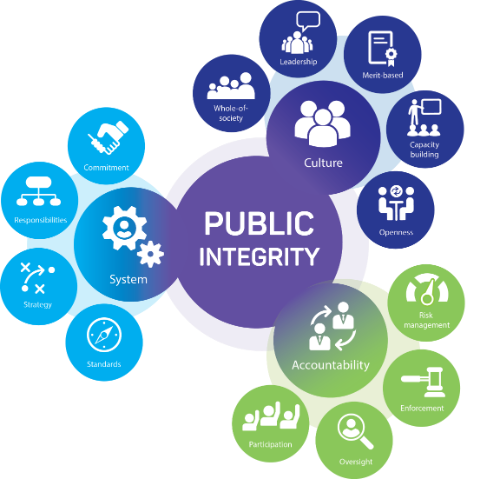Anti-corruption and integrity in the public sector

OECD Integrity Review of Thailand
Towards Coherent and Effective Integrity Policies
This review analyses Thailand’s integrity system. It takes stock of the country's
recent efforts to tackle corruption, such as the creation of anti-corruption commissions
and legislation. Based on the 2017 OECD Recommendation on Public Integrity, the review
makes concrete policy recommendations for Thailand in the areas of institutional arrangements,
integrity training for public servants, asset disclosure, and whistleblower protection.
Published on March 07, 2018
In series:OECD Public Governance Reviewsview more titles
TABLE OF CONTENTS
| Foreword | |
| Acronyms and abbreviations | |
| Executive summary | |
| An overview of governance and corruption in Thailand | |
| Encouraging a comprehensive and co-ordinated integrity system in Thailand | |
| Strengthening public ethics in Thailand | |
| Reinforcing public sector integrity in Thailand by managing conflicts of interest | |
| Encouraging reporting of corruption in Thailand through stronger whistleblower protection |
Powered by OECD iLibrary
Key recommendations
The government could develop more detailed guidance for officials considered at risk
of conflict-of-interest situations, and further expand the scope of its asset declaration
system to public officials that are considered at risk of corruption.
Thailand should consider developing an online disclosure system to facilitate the
submission, verification and audit, and subsequent publication of asset declarations.
To foster a culture of public integrity. Thailand could increase awareness of the
Code of Professional Ethics for Civil Servants by developing an in-depth training
programme, and introduce a dedicated whistleblower protection law to facilitate reporting
of suspected integrity violations.
